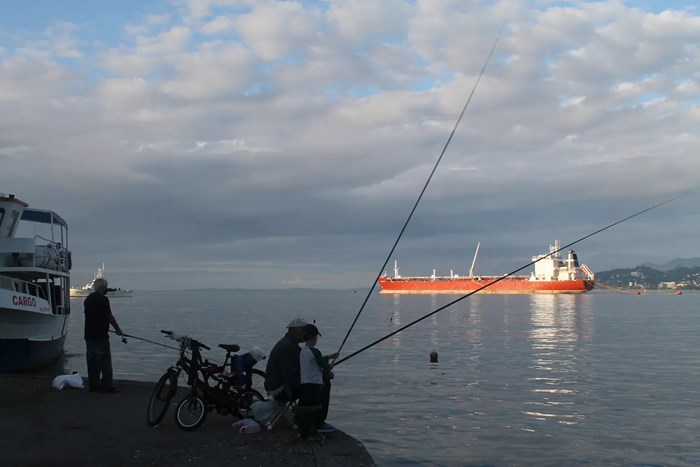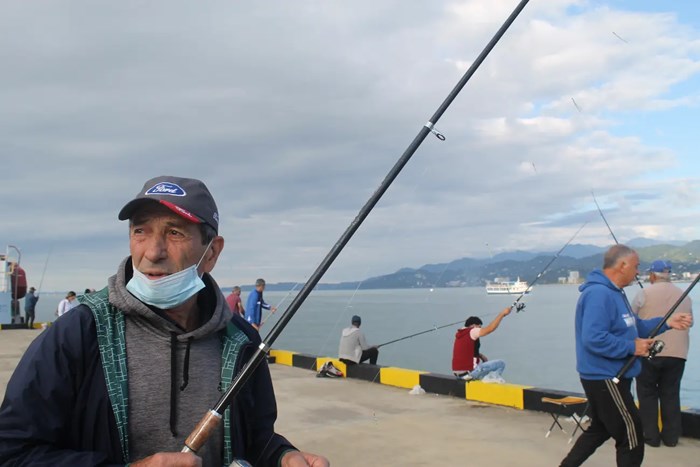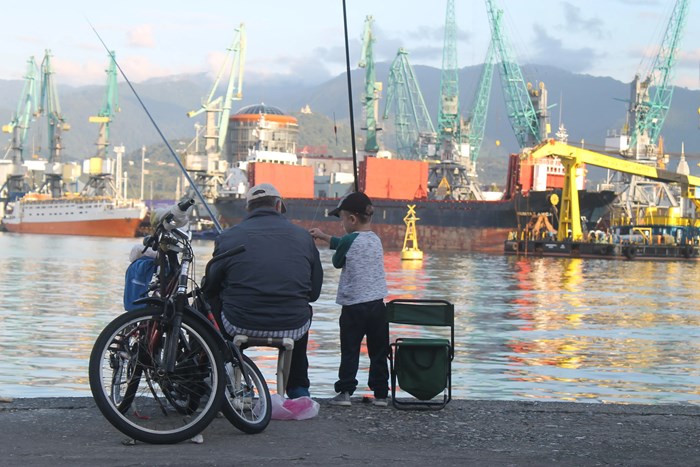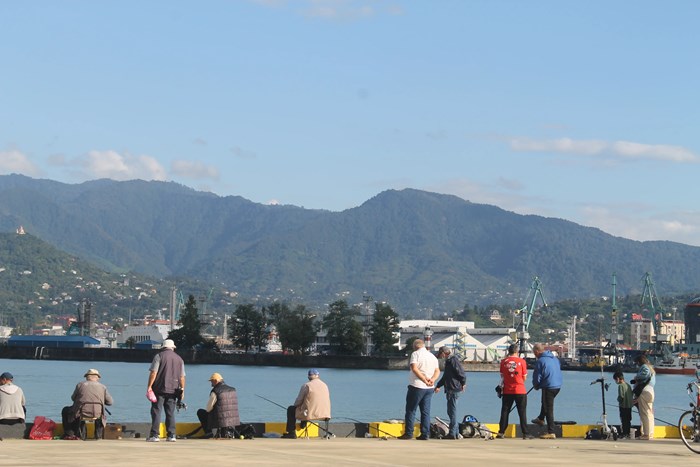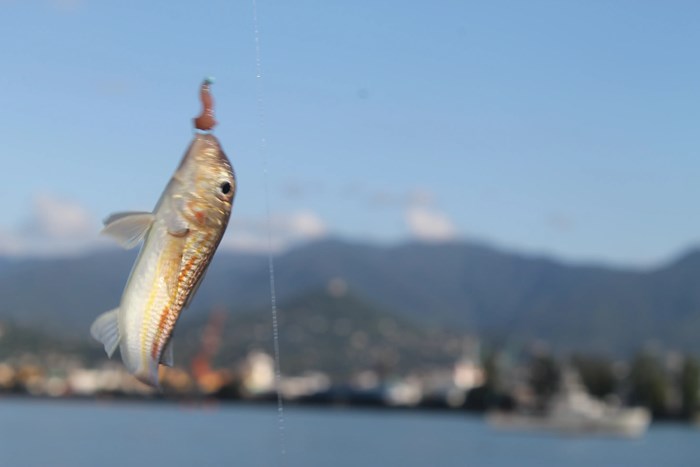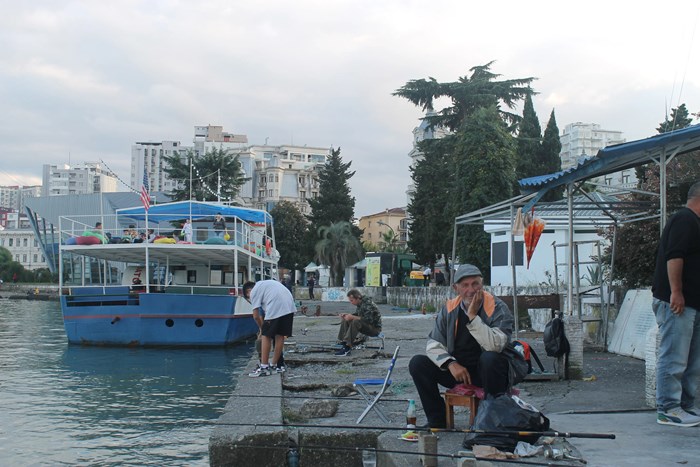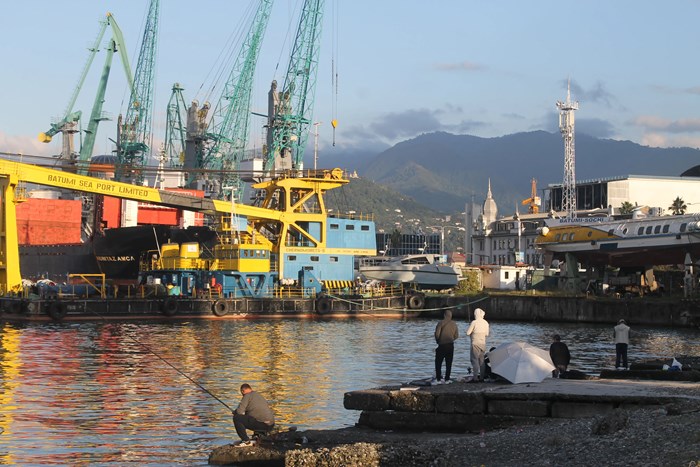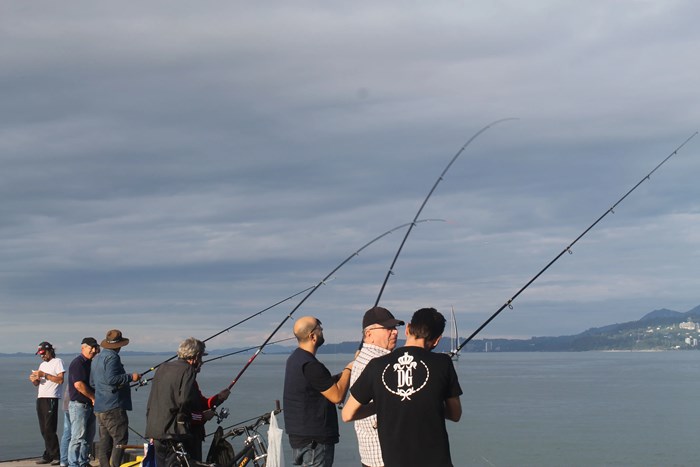Fishing for the Dregs of Summer
It snowed on Goderdzi Pass on the 26th of September, but down in Batumi, where the Lesser Caucasus meets the Black Sea, the transition from summer to winter is less obvious, a gradient of ever colder rainfall. The boulevard slowly empties—left behind: a couple awkwardly timed tour groups, a few Russians in bathing suits sunning on beach lounge chairs, a braver smaller few standing with their feet in the water, almost no one swimming. However, on either end of the boulevard, there’s a community of old men that will be here all year: the fishermen.
Guram Tsintsadze comes to the port end of the boulevard every day for 2 or 3 hours, and has been coming for the last 5 or 6 years, since he retired. On a sunny weekend day the section of harbor between Batumi’s famous statue of the doomed lovers Ali and Nino and the Argo cable car is host to at least 50 to 100 fishermen (and, on that day, one fisherwoman and several children).
On the day I spoke to Tsintsadze, there were no fish: “They come in periods. When one comes, another leaves. Right now there aren’t any,” he said. “If there are no fish, we talk.” A nearby fisherman was pulling up horse mackerel every couple minutes though. Giorgi Zirakashvili, an economist at the Polytechnic Institute several decades younger than the majority of the group only comes twice a week, so perhaps he needs to maximize his time there, or perhaps the fish were there and the retired crew was too busy chatting to notice…
“I fish sometimes. We talk.” Guram Khalvashi, a construction engineer from Benze put it simply. “It’s rest for us.” Guram, Guram, and Giorgi explained the different types of fish they catch: flathead grey mullet, some type of perch, herring, and a few more I couldn’t translate. Some of them use bread to bait the fish, though Tsintsadze finds plastic fishing lures just as effective at not catching fish as bait. Another guy in their group, Tengiz Ghurtskaia, had arrived on an electric scooter modified to hold his fishing poles. Originally from Abkhazia, he had a lot to say about marriage and life and so on, but very little about fishing, despite the commitment shown by his innovative means of transportation.
For a minority, the fishing is a job. Giorgi Abashidze was standing in the shadow of a seaside cafe with some friends, jokingly deemed the director, manager, and instructor of their very small fishing operation, drinking cognac and selling fish to passersby for 10 lari a kilo.
On an overcast day there will still be a lot of fisherman, and even in the rain I’ve noticed a few die-hards standing at the concrete edge in their raincoats. Now, as the days become shorter and cooler, the boulevard will empty further, the beachside clubs that survived COVID will close for the winter, but the fishermen will remain. Soon it will be hamsi season and the markets of Batumi will fill up with the iconic Black Sea anchovies, but for now, the fishing is less about fish and more about community.
Author: Katharine Khamhaengwong

